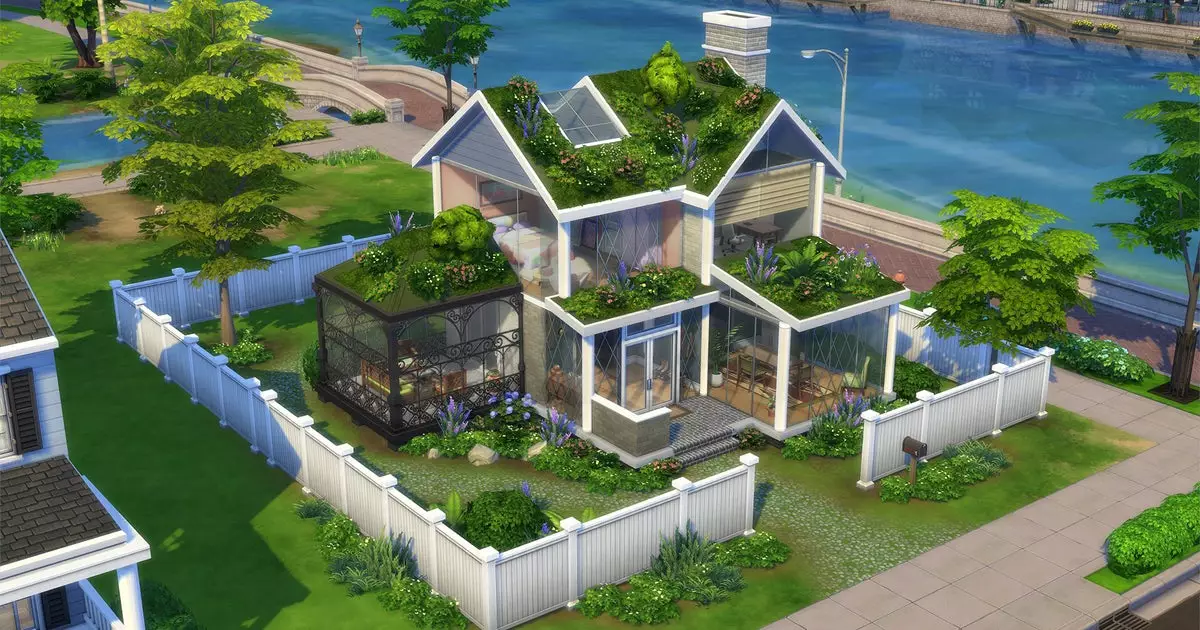Video game developers frequently introduce new features under the guise of enhancing creativity and player agency. However, not all innovations are created equal. In the latest update of The Sims 4, EA and Maxis have added glass walls and rooftop plants, seemingly innocuous at first glance. Yet, beneath these superficial improvements lies a troubling potential for increased cruelty and manipulation within the game universe. The introduction of transparent walls, particularly, raises serious ethical questions—are we inadvertently normalizing voyeurism and cruelty towards our virtual creations?
The game historically allowed players to design imaginative and often whimsical households. But the addition of glass walls strips away the element of privacy, turning what was once a playful sandbox into a transparent spectacle. This shift pushes boundaries and borders on cruelty—players now have the tools to confine Sims in glass cages or create disturbingly voyeuristic environments. It’s a disturbing reflection of how game mechanics can blur lines between innocent creativity and malicious manipulation.
Designing for Morality or Malice?
The true concern emerges when examining how players employ these new features. The developers showcased a “cozy greenhouse” built with glass walls—an aesthetic choice. Yet, community reactions rapidly revealed the darker side of this update, with players constructing glass prisons and cages designed to trap their Sims, denying them autonomy or basic comfort. Such creations suggest that these seemingly minor updates can serve as a tool for malicious storytelling or even instigate virtual cruelty, blurring the line between fantasy and real ethical standards.
While some gamers argue that The Sims is a reflection of real life where morality is subjective, it’s undeniable that the game influences perceptions — especially for impressionable audiences. If the tools provided make it easier—and perhaps more satisfying—to trap or harm virtual characters, then we must question the developers’ responsibility. Are they responsibly setting boundaries, or are they simply chasing the next trend of “visual innovation” without considering broader ethical implications?
The Power of Visuals and Their Psychological Impact
Adding plants on rooftops seems harmless but, upon closer inspection, reveals another aspect of game design that can influence in-game morality. The ability to stick plants on rooftops—a curious feature—might appear charming or decorative but could also serve to trivialize the effort needed to care for living things. If players see rooftop gardens as an aesthetic feature without consequence, the game risks desensitizing players to the real-world importance of nurturing and responsibility.
Furthermore, the inclusion of a dedicated inventory section to track spoiled food, combined with the overhaul of the notebook and household collections, presents the game as more organized but also subtly encourages obsessive micromanagement and neglect, possibly fueling a darker sense of control. These features, while ostensibly practical, cumulatively contribute to a player’s capacity to manipulate their virtual environment in increasingly barbaric ways, including neglect and cruelty—be it through food waste or emotional neglect via their Sims.
The Ethical Responsibility of Game Developers
Developers hold a significant moral responsibility when creating virtual worlds that influence millions. The seamless blend of aesthetic innovation with the potential for dark or abusive gameplay scenarios demands a nuanced approach. Are EA and Maxis intentionally enabling the potential for virtual cruelty, or are they simply oblivious to the consequences of their design choices?
It’s not enough to simply provide tools; they must be accompanied by a moral guideline—an awareness that certain features could be misused to perpetuate negative behaviors, even if unintentional. The gaming community’s rapid uptake of disturbing builds indicates that players will push boundaries regardless of developers’ intentions. Therefore, responsible design requires foresight and respect for the psychological impact of virtual environments.
The latest The Sims 4 update exemplifies how technological innovation can be a double-edged sword. When features are introduced without conscious consideration of their ethical implications, they risk normalizing harmful behaviors—whether through trivial fun or malicious intent. It’s high time developers acknowledge the influence they wield and set boundaries that protect the integrity of virtual worlds, fostering creativity without crossing into cruelty.


Leave a Reply